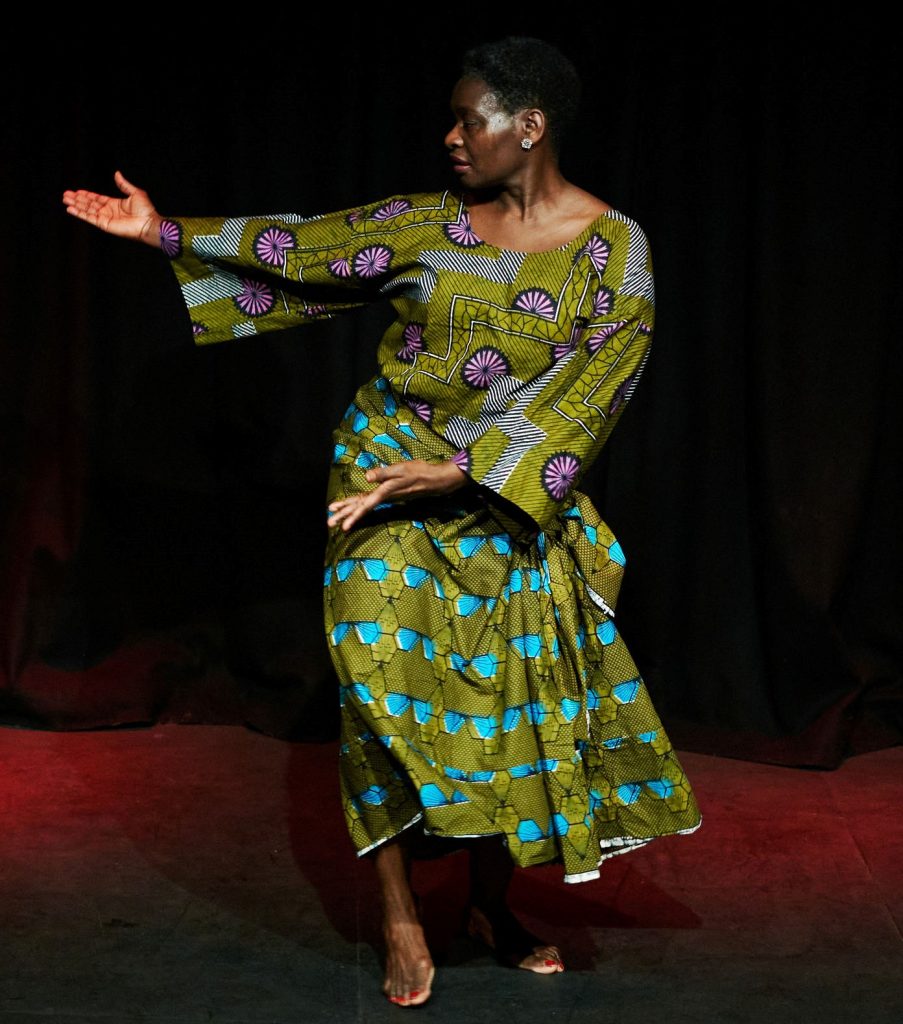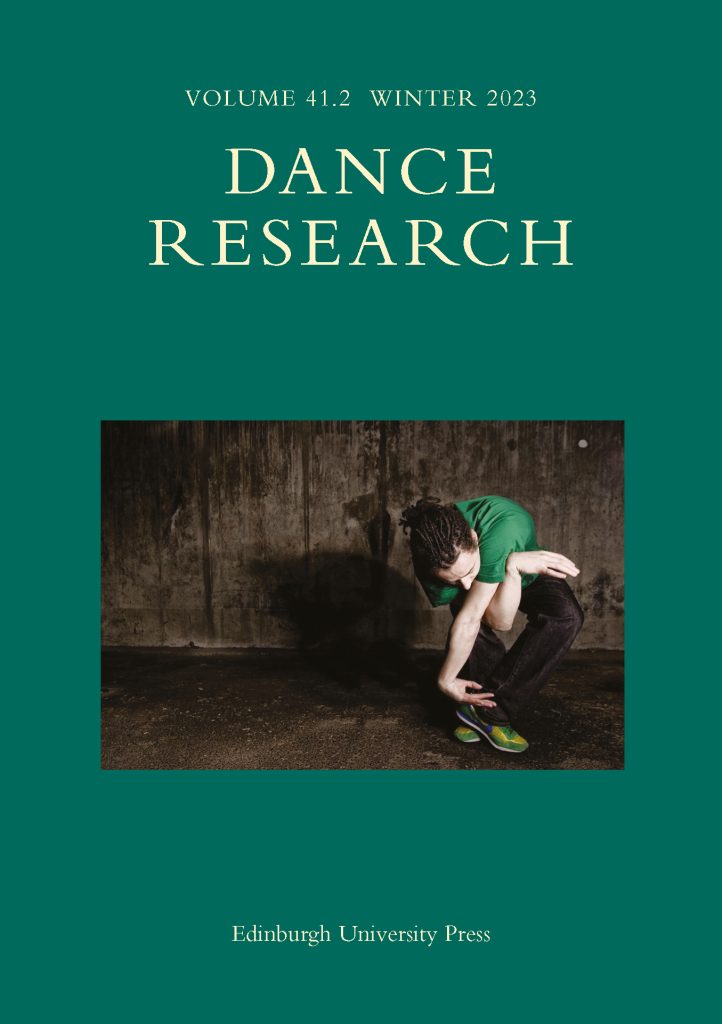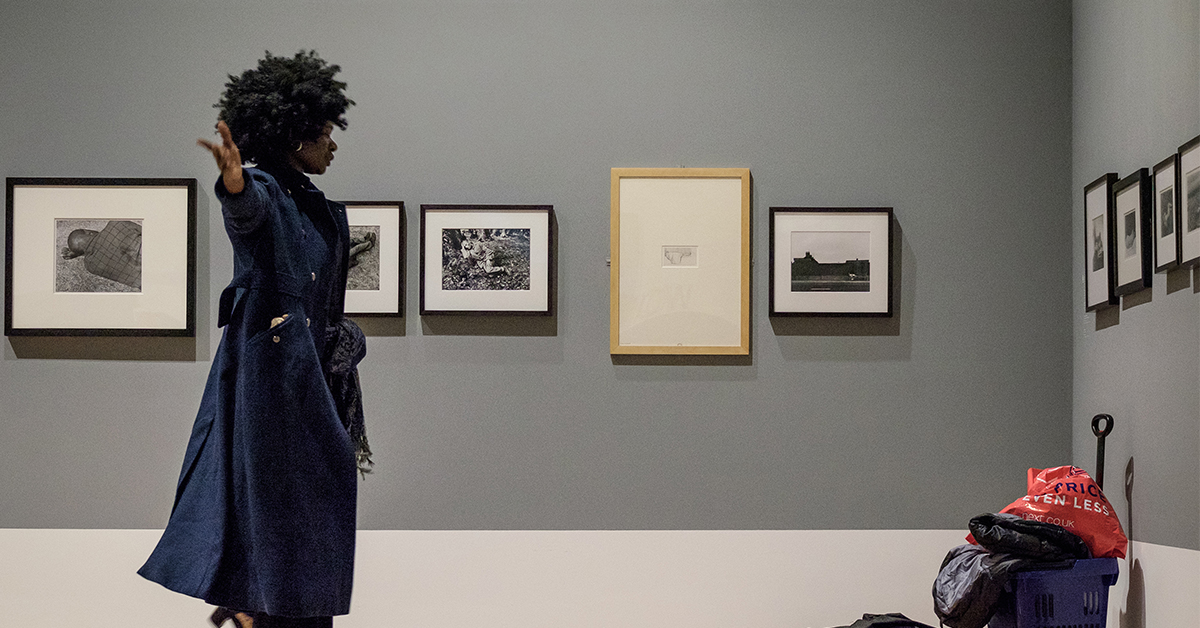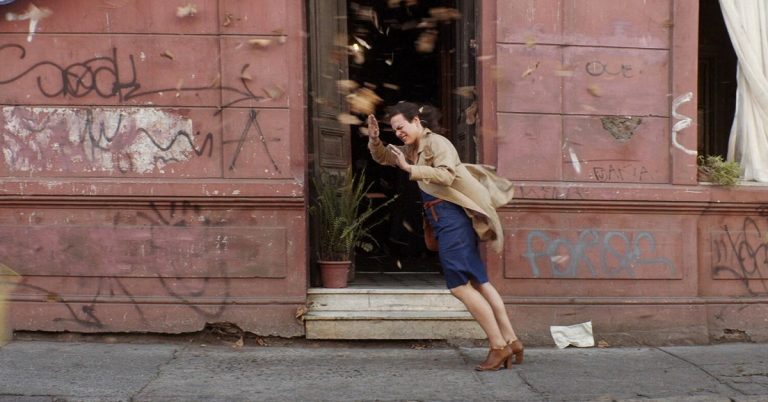
by ‘Funmi Adewole Elliott
Over the years I have carried out several research projects as a practitioner, at times with funding from organisations like the Arts Council and Chisenhale Dance Space or with support from The Space at Clarence Mews. These projects constituted a form of professional development for me as a performer.
I was either exploring the features of a dance form or dance sequence or researching ways of developing dance theatre. The focus of this practice research project was different, as I specifically wanted to engage with academic discourses. It centred on situating the solo performances I had created over the years within a discursive context. I outline my process in Dancing and the Stance: Mapping a creative practice in African dance-drama (2023) in Dance Research 41 (2). The paper focuses on a single solo performance of mine called The Blind Side, which was premiered in 2022 at the YENSA festival for black women choreographers in Toronto, Canada.

My creative practice is informed by, amongst other things, the knowledge and skills I acquired from the genres of African dance-drama and performance poetry, initially as a student at the University of Ibadan in the 1980s and then on the job. These genres provided me with a basis for the touring career I embarked on when I moved to Britain in the 1990s which included working with African dance theatre, Physical theatre and Contemporary dance companies as well as devising solo performance.
‘What tacit knowledge have I been drawing upon?’, was one of the starting questions for the research project. As my findings emerged, I found they connected to my professional work. My teaching practice, for example, revolves, in part, around the role of “the stance” in aiding dancers to produce specific movements. I came to this understanding of the stance through performing in African dance theatre, hence the title of the article.
Over the course of the project, I began to own the fact that for postcolonial performance practices, at least, this kind of practice research project is as much an interrogation of the context of the practice as it was of the practice itself. On reflection, it was a search for language, and as language has a systematizing function, it conceptualises my practice in relation to specific settings. Knowledge production is context-specific, partial, and revealing of cultural politics. However, it usefully offers insights and questions that are precious for practitioners and the environments they work in.
I found the project enriching in that it provided me with a way of articulating what I have been investigating and continue to investigate in performance, in short, a discursive context.
Sign up to our mailing list to keep up to date with all of our free content and latest releases
About the journal

Dance Research, the journal of the Society for Dance Research, is essential reading for those involved in the study and practice of dance. The journal covers dance worldwide both from a historical and contemporary perspective, engaging with current debates on dance and across cognate disciplines with dance at the centre of inquiry.
Sign up for TOC alerts, subscribe to Dance Research, recommend to your library, and learn how to submit an article
About the author
‘Funmi Adewole Elliott is an independent arts practitioner and a senior lecturer in Dance at De Montfort University, Leicester, England. Her research interests include Black British dance artists, Contemporary dance in Africa, Somatic work and Dance as profession.





